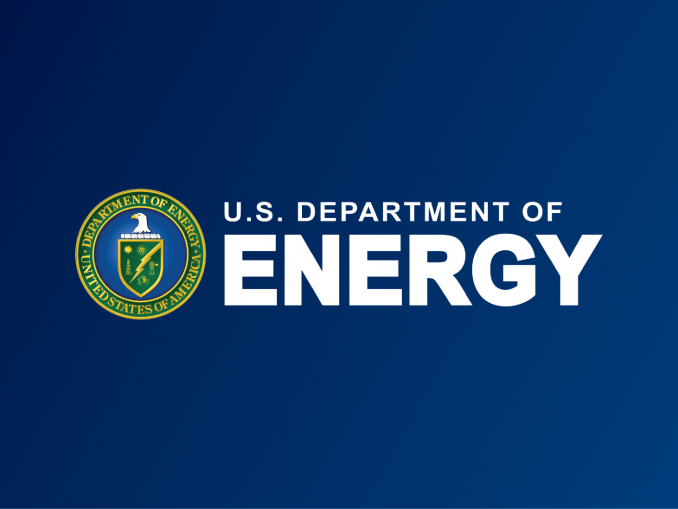
WASHINGTON, D.C.—As part of President Biden’s Investing in America agenda, the U.S. Department of Energy (DOE) today announced its fourth round of award recipients through the Energy Efficiency and Conservation Block Grant (EECBG) Program. The EECBG Program will distribute $17.28 million to four states, 23 local governments, 2 Tribes, and the territory of Guam to improve energy efficiency, reduce carbon emissions, and lower overall energy use to help save residents money on energy in the long run. The EECBG Program, through the DOE Office of State and Community Energy Programs (SCEP) and funded by President Biden’s Bipartisan Infrastructure Law (2021), is designed to fund a wide range of energy efficiency and decarbonization projects. Through the program, 1,878 local governments, 774 Tribes, 5 territories, the District of Columbia, and all 50 states are eligible to receive these formula funds. The program funding is highly flexible, with over 14 categories of eligible use, allowing grantees to invest in projects that align with efforts already in motion to lower energy costs, plan for a clean energy future, and reduce energy burden.
“Thanks to President Biden’s Bipartisan Infrastructure Law, the Department of Energy is continuing to meet communities where they are, and support them where they need it the most,” said U.S. Secretary of Energy Jennifer Granholm. “Our EECBG Program can help communities fund work that they have been hoping to complete, like upgrading to LED streetlights or adding public EV infrastructure. These dollars fit right into the energy plans that cities, counties, Tribes, and states already have to ensure they are set up for success as they pursue a clean energy future.”
This is the fourth tranche of formula awards granted to EECBG Program eligible entities. Since the first awards were announced in October 2023, the EECBG Program has awarded $91.51 million to 97 communities.
This month, grantees will use EECBG Program funds to solarize schools, develop electric transportation incentive programs, provide funding for energy retrofits on low-income homes, make essential energy efficiency upgrades on municipal buildings and facilities, install renewable energy systems at schools, and more.
Read more to learn about what grantees in this tranche are doing with their funds:
Guam will install solar panels, battery storage, and 540 solar LED lights to eleven government buildings, prioritizing community centers in disadvantaged communities. These projects will improve light quality, bolster climate resilience, and cut operational costs. Cost savings from the clean energy upgrades will enable community centers to direct more resources to programming for underserved youth. (Award amount: $1,572,930)
North Carolina will establish a competitive sub-granting program for local governments to pursue a broad range of energy efficiency retrofits and renewable energy installations in municipal facilities. Example activities include installing onsite renewables, efficiency auditing and planning, and more. The state will prioritize funding for projects in disadvantaged communities, consistent with the Justice40 Initiative. These projects will help North Carolina meet its goal to be carbon neutral by 2050. (Award amount: $2,999,170)
Las Vegas, NV will install 500 kW solar systems at city facilities, including two fire stations, the Municipal Court, and the Civic Plaza. The new solar arrays will generate up to 400,000 kWh annually and contribute to the city’s 2050 Master Plan by reducing energy costs and emissions. (Award amount: $583,470)
New Bedford, MA will create a “One Stop Shop” for residents to access energy efficiency home upgrades. The program will fund retrofits that decrease energy use and improve indoor air quality and resilience to climate hazards. The pilot program will retrofit four single-family homes in low-income and energy burdened neighborhoods serviced by oil or gas. (Award amount: $148,890)
Cuyahoga County, OH will subgrant its award to five Northeast Ohio school districts in energy justice communities to install between 500 kW–1 MW of solar panels on school buildings. Solar technology will be installed on buildings in the Cleveland Municipal School District, East Cleveland City School District, Euclid City School District, Maple Heights City School District, and Cuyahoga Heights City School District, leveraging an additional $500,000 in tax credits for schools available through the Inflation Reduction Act (IRA). (Award amount: $557,250)
Carolina, Puerto Rico will upgrade 47 streetlights to energy-efficient LED lamps and fixtures on Reverenda Haydee Castro Street in downtown Carolina, a disadvantaged area. This will prepare the municipio to install a lighting control network that will provide real-time updates when blackouts occur while lowering energy usage and costs. (Award amount: $191,230)
Cachil DeHe Band of Wintun Indians of the Colusa Indian Community of the Colusa Rancheria, California will apply their award towards the cost of purchasing and installing a DC fast charging station for electric vehicles (EVs), which will be available for public use on Tribal Trust Land. Conveniently located at the Tribe’s Mini Mart, the charger will improve access to zero-carbon transportation in the community. (Award amount: $10,040)
The Choctaw Nation of Oklahoma will conduct energy audits in Tribal Nation buildings and create an energy conservation strategy. Technical consultants will perform this work in collaboration with the Nation’s newly formed Energy Management Team. The strategy will allow the Nation to track progress towards their energy goals and quantify savings from energy efficiency upgrades. (Award amount: $82,030)
Other Awards Announced Today Include:
- Anderson County, SC ($227,180)
- City of Cheyenne, WY ($125,720)
- City of Cincinnati, OH ($334,440)
- City of Fort Worth, TX ($785,490)
- City of Gainesville, FL ($189,820)
- Henry County, GA ($249,580)
- Town of Holly Springs, NC ($76,320)
- City of Jacksonville, FL ($845,350)
- City of Longmont, CO ($148,550)
- City of Longview, TX ($141,720)
- City of Mobile, AL ($229,820)
- City of New Orleans, LA ($381,470)
- City of Palm Beach Gardens, FL ($123,090)
- City of Pico Rivera, CA ($120,010)
- City of San Diego, CA ($1,185,290)
- City of Seaford, DE ($75,320)
- City of Tigard, OR ($118,610)
- City of Trumbull, Town of, CT ($76,260)
- City of Warner Robins, GA ($135,070)
- State of Kansas ($1,914,100)
- State of Mississippi ($2,000,650)
- State of North Dakota ($1,653,240)
View the full list of EECBG Program-funded projects to date on our website.
The deadline for Tribes to apply for EECBG Program formula funds has been extended to May 31, 2025. The deadline for local governments – including Puerto Rican municipios – is April 30, 2024.
Local governments and Tribes have the unique option to apply for traditional grants or vouchers for equipment rebates or technical assistance. In November 2023, DOE launched the Voucher Portal to submit voucher applications. This streamlined platform and application will reduce the administrative burden of applying for and managing EECBG Program awards.
DOE offers technical assistance to EECBG Program eligible entities to prepare their applications and energy efficiency and conservation strategies, develop project plans, and identify opportunities in their communities. Technical assistance opportunities include EECBG Program Blueprints and cohort training sessions, as well as the option to apply for in-house implementation support via a Community Energy Fellow (for those pursuing traditional grants). The deadline for grantees to apply for this in-person support is March 5, 2024.
Formula awards are announced on a monthly basis. For more information on eligibility, how to apply, and available technical assistance, see the EECBG Program website.








